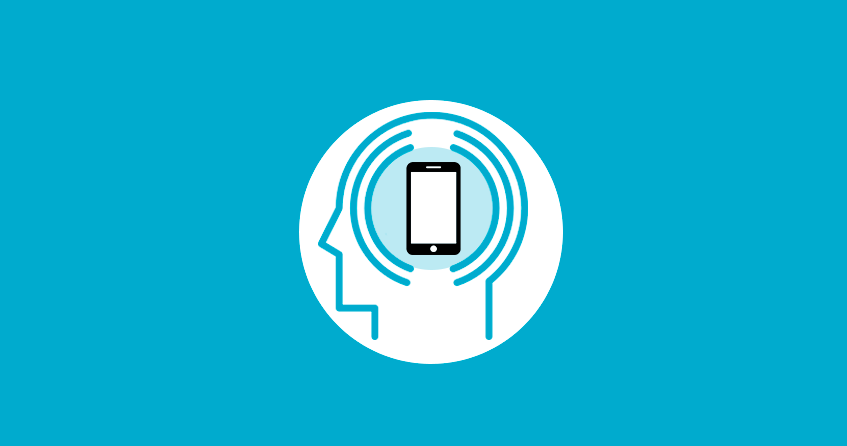Technology’s changing power is beyond doubt. In addition, as its development increases, so does the speed with which it influences society.
For about a decade, the massive use of smartphones has changed our lifestile in a way that is much more significant than what we could have imagined only 10 or 15 years ago.
For many people, mobile phones are not only essential tools in their daily lives, but rather, those have taken control of their time and their lives to such an extent that they have become a serious problem.
What is nomophobia?
Nomophobia (word derived from the expression “no-mobile-phone-phobia”) is a term employed to describe the symptoms that someone suffers when facing the fear of not having a mobile phone, and the services that said phone provides (especially phone calls and Internet conection).
Nomophobia is an important matter. Some studies have claimed that the feeling of anxiety, in the absence of a mobile phone, may affect about 50% of the population (though, within these symptoms, the severity might differ greatly among those who are affected). Furthermore, it is becoming an increasing problem since it specially affects young people, who have become used to this technology from their early ages and who are also more vulnerable, as they need the “social approval” provided by the continuous use of platforms like social networks. However, it is necessary to consider that no age is free of risk.
Like any other phobia, nomophobia can be perceived through commmon symptoms like fear, nervousness or anxiety, but it could also involve tachycardia, headaches, stomach ache or obsessive thoughts.
The causes of nomophobia tend to be fairly obvious. Frequently, addiction to mobile phones (really widespread nowadays, as you may already know) is the main cause, which makes someone be afraid of not having a false feeling of satisfaction, provided by compulsive phone consultation.
However, we should not only think that nomophobia is the result of said addiction. Rather, it might conceal other problems, such as low self-esteem and difficulties to interact with others, other than interacting online.
How does nomophobia affect someone’s daily life?
We just have to take a look around to see how mobile phone addiction and nomophobia make people who suffer its effects to become sort of “slaves”.
In the first instance, nomophobia forces someone who is suffering from it to check their mobile phone constantly, to the point of neglecting other aspects of their life. Thus, it can have an impact on someone’s work, relationships and, in general, on any other aspect of the person’s life that may require attention.
But it doesn’t stop there. The anxiety generated by the idea of not having a mobile phone and the need to check it constantly can produce a widespread nervousness, which can increase dramatically in certain situations, to the point of conditioning someone’s life.
For example, someone who suffers from nomophobia may avoid travelling or going to areas where the broadband coverage might be poor, because that would force him to be “disconnected”. Or someone could miss the opportunity to go somewhere, because there is no close power source available to connect one’s device and might run out of battery. Bearing in mind our daily needs, the previous facts may become serious limitations for our day-to-day.
In addition, insomnia could cause harmful consequences. Some people even wake up on countless occasions during the night, in order to check that they still have connection and check the updates on their social networks, etc.
How can someone cope with nomophobia?
As it is a grave condition, we must deal with nomophobia as what it really is: a serious problem. Therefore, the best procedure is seeking professional help, which will be helpful in order to overcome the situation.
However, we can consider some ideas to cope with nomophobia, which will not serve, in any way, as a replacement for professional recommendations:
1. Find certain moments to disconnect
It is an habit employed to get the brain used to the idea of having moments of disconnection, which are not only good, but necessary. Moments such as meals or, of course, sleeping hours, must be fully respected, completely disregarding the use a mobile phone.
2. Make a distinction between real life and virtual life
One of the main causes of nomophobia is the idea of giving a real-life experience a status, which may be equal or even greater than what we experienced in our “real” life.
However, we should understand that our “virtual life” is just a part of something greater: our real life.
3. Put a limit on the information that you receive
Are you addicted to reading notifications? Do you constantly wonder whether your contacts have read your messages? Frequently, messaging applications offer you the option to remove these features that can create so much anxiety. Use them, you don’t need to spend all day wondering about what someone else is doing.
4. Use only the apps that you really need
Installing an endless number of apps (especially social networks) on your mobile phone can be a total trap. While communication options multiply, the person suffering from nomophobia needs to feed their addiction even more. Therefore, not installing that many applications can be a good way to avoid the temptation.
Summary
Remeber that technology is present in our lives to help us, not to turn us into slaves. That is why, using technology in a reasonable way will always be the smart choice. And if you are not able to do it by yourself, do not hesitate to ask for help.
In Pandora RC’s blog we will always be in favor of a reasonable and balanced use of technology. For example, if you use Pandora RC, do it always applying common sense. Don’t you know what Pandora RC is yet? Click here.
Pandora FMS’s editorial team is made up of a group of writers and IT professionals with one thing in common: their passion for computer system monitoring. Pandora FMS’s editorial team is made up of a group of writers and IT professionals with one thing in common: their passion for computer system monitoring.

















